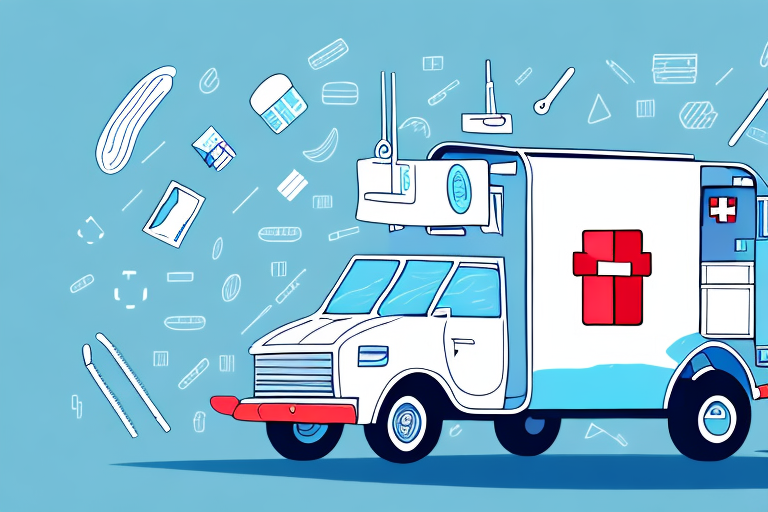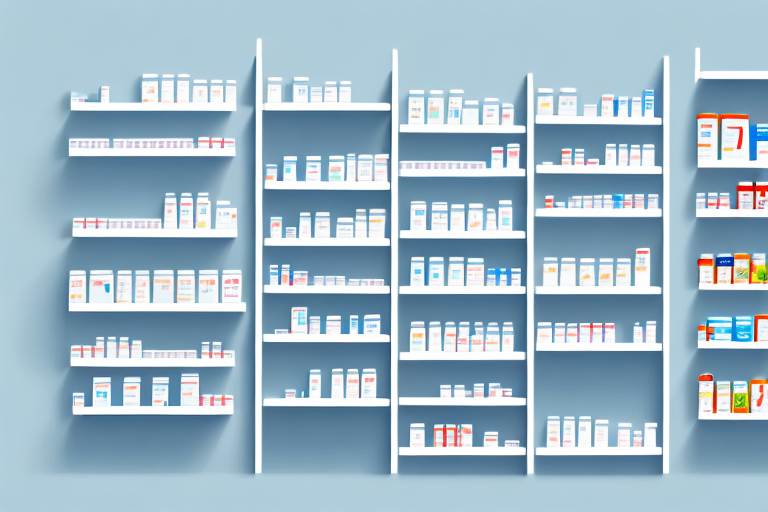Understanding Medical Delivery Services
What are Medical Delivery Services?
Medical delivery services are specialized companies that ensure the safe and timely transportation of medical supplies, equipment, medications, medical records, and specimens between healthcare facilities such as hospitals, laboratories, pharmacies, and clinics. These services adhere to stringent medical guidelines and regulations to maintain the integrity and safety of the materials being transported.
During the COVID-19 pandemic, the critical role of medical delivery services was highlighted. They not only met the surge in demand for medical supplies and equipment but also minimized the risk of virus exposure by reducing the need for healthcare workers to leave their facilities to procure necessary items.
The Growing Need for Medical Delivery Services
The demand for medical delivery services is escalating due to several factors, including an aging population, the increasing prevalence of chronic diseases, and the expansion of healthcare services into remote areas. According to a report by Grand View Research, the global medical logistics market is expected to grow significantly, driven by the need for efficient supply chain solutions in healthcare.
Additionally, the rise of telemedicine and home healthcare services has further increased the reliance on medical delivery services to provide timely access to medications and medical devices for patients in the comfort of their homes.
Current Industry Landscape
The Current State of the Medical Delivery Services Industry
The medical delivery services industry is witnessing robust growth, with projections indicating a compound annual growth rate (CAGR) of approximately 6% by 2027, according to MarketsandMarkets. This growth is fueled by the increasing need for efficient delivery systems, the outsourcing of logistics by healthcare providers, and advancements in medical technologies.
Compliance with regulations remains a significant challenge. Companies must adhere to strict guidelines regarding the handling, storage, and transportation of medical supplies, ensuring factors like temperature control, proper labeling, and accurate documentation are meticulously followed.
Technological integration is a key trend transforming the industry. The adoption of GPS tracking, automated inventory management systems, and real-time monitoring tools has enhanced operational efficiency, reduced costs, and improved transparency for clients.
Future Outlook of the Medical Delivery Services Industry
The future of the medical delivery services industry looks promising, with innovations such as artificial intelligence (AI) and drone delivery expected to revolutionize the sector. AI can optimize routing and inventory management, while drones offer the potential for rapid delivery in hard-to-reach areas.
Emerging markets present new opportunities for expansion. As healthcare infrastructure develops in regions like Asia-Pacific and Latin America, the demand for reliable medical delivery services is anticipated to rise, creating avenues for growth and investment.
Career Opportunities in Medical Delivery Services
Different Types of Medical Delivery Services Jobs
The medical delivery services industry offers a diverse range of job opportunities, including:
- Medical Couriers: Transport specimens, equipment, and supplies between healthcare facilities.
- Dispatchers: Coordinate delivery schedules and manage logistics operations.
- Administrative Personnel: Handle clerical tasks, customer service, and coordination.
- Supply Chain Managers: Oversee the entire supply chain process from procurement to distribution.
- Logistics Coordinators: Manage the flow of goods and ensure timely deliveries.
- Freight Transportation Specialists: Handle large-scale transportation needs, including air and freight deliveries.
As the industry expands, new roles focusing on technology integration and data analytics are also emerging.
Job Requirements and Qualifications for Medical Delivery Services Positions
Job requirements vary based on the position:
- Delivery Drivers: Must possess a valid commercial driver's license (CDL) and have a clean driving record.
- Dispatchers and Administrative Staff: Require knowledge of the medical supply chain and excellent organizational skills.
- Supply Chain Managers: Typically need a degree in logistics or supply chain management and several years of industry experience.
Across all positions, key qualifications include strong communication skills, attention to detail, the ability to work under pressure, and a commitment to maintaining confidentiality and professionalism.
Flexibility and adaptability are also crucial, as delivery schedules can change unpredictably, and the industry continually evolves with new technologies and regulations.
Salary Expectations in the Medical Delivery Services Field
Salaries in the medical delivery services industry vary based on role, experience, and location:
- Entry-Level Positions: Delivery drivers and dispatchers typically earn between $15 to $20 per hour.
- Mid-Level Positions: Logistics coordinators and administrative personnel can expect salaries ranging from $35,000 to $50,000 annually.
- Senior-Level Positions: Supply chain managers and senior executives may earn between $60,000 to $100,000 per year.
Many companies also offer benefits such as health insurance, retirement plans, and paid time off, enhancing the overall compensation package.
Career Growth Opportunities in the Medical Delivery Services Industry
The industry provides ample opportunities for career advancement. Employees can progress from entry-level roles to management positions, such as supply chain managers or logistics directors. With sufficient experience and expertise, individuals may also pursue entrepreneurial ventures by starting their own medical delivery services companies.
The continuous evolution of the industry, driven by technological advancements and expanding markets, ensures that new roles and opportunities will emerge, allowing professionals to diversify and advance their careers.
Challenges Faced by Workers in the Medical Delivery Services Sector
Working in medical delivery services comes with its set of challenges, including:
- Exposure to varying weather conditions and traffic congestion, which can impact timely deliveries.
- High-pressure situations where delays can affect patient care and outcomes.
- Risk of theft or damage to medical supplies during transportation.
- Delivering to remote or hard-to-reach areas, increasing the risk of accidents and delays.
Despite these challenges, many find the role rewarding due to its direct impact on patient care and healthcare operations.
Working in Medical Delivery Services
The Benefits and Drawbacks of Working in Medical Delivery Services
Working in medical delivery services offers several benefits:
- Job Stability: The essential nature of medical delivery ensures consistent demand.
- Career Growth: Opportunities for advancement and skill development.
- Impactful Work: Contributing directly to patient care and healthcare effectiveness.
However, there are also drawbacks to consider:
- Long and irregular hours, including nights and holidays.
- Exposure to harsh weather conditions and the physical demands of the job.
- Potential for high-stress situations due to the critical nature of timely deliveries.
- Competitive industry environment, which may affect job security and benefits.
Ultimately, the rewards of making a positive impact in healthcare can outweigh the challenges for those passionate about the field.
Tips on Finding the Right Job in the Medical Delivery Service Industry
To secure a suitable position in the medical delivery services industry, consider the following tips:
- Research Companies: Investigate potential employers' reputations, work cultures, and service offerings.
- Network: Connect with industry professionals through platforms like LinkedIn or industry events to gain insights and referrals.
- Tailor Your Resume: Highlight relevant experience in logistics, supply chain management, or healthcare transportation.
- Obtain Necessary Certifications: Depending on the role, certifications such as a CDL or specialized training can enhance your employability.
How to Apply for Jobs in Medical Delivery Services
The application process typically involves:
- Online Applications: Submit your resume and cover letter through the company's website or job portals.
- Direct Submissions: Send your CV to the company's human resources department via email or postal mail.
- Follow Up: After applying, follow up with the company to express your continued interest and inquire about the hiring timeline.
Ensure that your application materials clearly demonstrate your relevant skills, experience, and commitment to the role.
Interview Tips and Tricks for Medical Delivery Services Applicants
Preparing for an interview in the medical delivery services sector involves:
- Understand the Supply Chain: Be prepared to discuss your knowledge of the medical supply chain and logistics processes.
- Showcase Interpersonal Skills: Demonstrate your ability to communicate effectively and work collaboratively.
- Highlight Attention to Detail: Provide examples of how you ensure accuracy and efficiency in your work.
- Research the Company: Familiarize yourself with the company's mission, values, and services to tailor your responses accordingly.
- Prepare for Scenario-Based Questions: Be ready to discuss how you would handle specific challenges related to medical deliveries.
Entrepreneurship in Medical Delivery Services
How to Start Your Own Business in the Medical Delivery Service Industry
Starting a medical delivery services business involves several key steps:
- Conduct Market Research: Analyze the demand, competition, and regulatory requirements in your target area.
- Develop a Business Plan: Outline your business model, services offered, pricing strategy, and financial projections.
- Obtain Necessary Licenses and Insurance: Ensure compliance with local, state, and federal regulations, and secure appropriate insurance coverage.
- Source Equipment and Supplies: Invest in reliable transportation vehicles, temperature-controlled storage solutions, and necessary medical-grade packaging.
- Recruit and Train Staff: Hire qualified personnel and provide training on handling medical supplies and adhering to safety protocols.
- Implement Technology Solutions: Utilize logistics software, GPS tracking, and inventory management systems to streamline operations.
Entrepreneurs should be prepared to invest capital and navigate the challenges of establishing a new business in a competitive industry.
In conclusion, the medical delivery services industry offers a wealth of career opportunities for individuals interested in logistics and healthcare. With sustained industry growth, job seekers can explore various roles, while entrepreneurs have the potential to innovate and expand services to meet evolving healthcare needs. As the industry continues to advance, those involved in medical delivery services will play a crucial role in supporting healthcare systems and improving patient outcomes.








